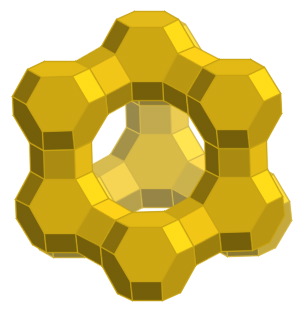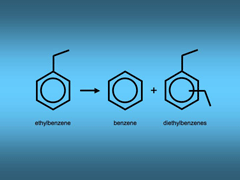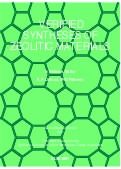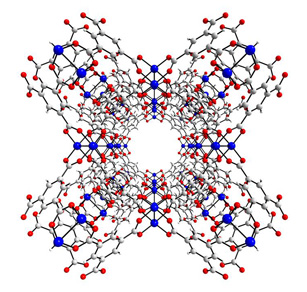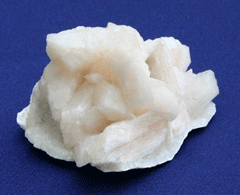Latest News |
||||||||||||||||
| Jan 1, 2025 | New Award: "Women in Zeolite Science," Supported by Elsevier | |||||||||||||||
| Applications should be
submitted by March 31, 2025, and the
winner will be announced at the 21st International Zeolite
Conference (IZC) in Dalian, China. Purpose: The Women in Zeolite Science Award celebrates women who have demonstrated exceptional contributions to zeolite and related porous materials science. It acknowledges outstanding achievements in research, innovation, applications, mentorship, career development, leadership, and dedication to the zeolite and related porous materials science community. This award showcases excellence in advancing zeolite and related porous materials science and seeks to inspire more women to contribute significantly to the field. Eligibility and Conditions Field of Research: Candidates must have demonstrated impactful contributions to the field of zeolite and related porous materials science within the five years preceding the upcoming International Zeolite Conference (IZC). Professional Experience: Candidates must have at least five years of independent experience in zeolite and related porous materials research or related activities, which may include publishing impactful research, leading research projects, developing novel applications, demonstrating leadership in collaborations and field initiatives. Assessment Period: The award focuses on achievements within the recent five-year period to highlight ongoing advancements in zeolite and related porous materials science. Selection Criteria 1. Scientific Impact: Originality and significance of contributions to zeolite and related porous materials science, including breakthrough research (such as patents, key publications, etc.), development of pioneering research ideas (projects), creation of innovative applications (such as start-ups), introduction of new methodologies or technologies, and others. 2. Leadership and Influence: Evidence of leadership roles (Principal Investigator, corresponding author), active collaboration (co-corresponding author, co-Principal Investigator), contributions to advancing zeolite and related porous materials science through both research (fundamental discoveries, process advancements) and engagement with the broader community, including service to national and international associations, journals, foundations, study programs, and organizations related to zeolite and related porous materials science. 3. Professional Recognition: Awards, honors, grants, or other professional distinctions that emphasize the candidate’s influence and contributions to the zeolite and related porous materials science community. Application Requirements Candidates are required to submit: 1. A two-page application summarizing their primary achievements and contributions to zeolite and related porous materials science, with a focus on the last five years. 2. A one-page CV outlining their background and relevant experience. This award underscores our commitment to celebrating excellence in zeolite and related porous materials science and supporting the impactful contributions of women in the field. Selection Procedure A three-member Award Committee is appointed by the IZA Council to evaluate the applications. The committee will be responsible for obtaining at least one independent opinion on each candidate from established researchers in the field of zeolite and related porous materials. The winner will be invited to guest-edit a special issue of Microporous and Mesoporous Materials and contribute a Review Article. Applications should be sent to the Secretary of the IZA: Prof. Natasa Zabukovec Logar E-mail: natasa.zabukovec@ki.si |
||||||||||||||||
| Aug 20, 2024 | Nominations for the 2025 Donald W. Breck Award invited | |||||||||||||||
| The Breck Award nomination
committee invites nominations for the 2025 Donald W. Breck
Award. This award is for the most significant contribution
to Molecular Sieve Science and Technology made between
January 1, 2020 and December 31, 2024. The winner will be
announced during 21st IZC in Dalian, China. The award may be given to an individual or to a group. The nomination should be accompanied by a list of maximum 5 references and a 2 page summary outlining in detail the novel findings and their scientific merit. It should includes supporting letters from three established zeolite scientists. For more Information visit the Breck Award page. Nominations should be sent by March 31, 2025 to the Chair of the Breck Award Committee: Prof. Suk Bong Hong E-mail: sbhong@postech.ac.kr |
||||||||||||||||
| Aug 20, 2024 | The Young Researcher Award (YRA) committee invites applications for the 2025 YRA | |||||||||||||||
| The Young Researcher Award
will be given to an individual for outstanding contribution
to the Science and Technology of zeolites and related
nanoporous materials in the period from January 1, 2022 to
December 31, 2024. The winner will be announced during 21st IZC in Dalian, China. For more information visit the YRA page. The applications should be sent by March 31, 2025 to the Chair of the Young Researcher Award committee: Prof. Jean-Piere Gilson E-mail: jean-pierre.gilson@ensicaen.fr |
||||||||||||||||
| Aug 20, 2024 | Proposals for the organization of the 23rd International Zeolite Conference | |||||||||||||||
The IZA Executive Council is
soliciting proposals for organizing the 23rd IZC to be held
in 2031. A proposal should contain sufficient detail,
including the specific proposed conference location, to
permit a reasonable evaluation of its merits, and must
contain the name of a person who agrees to become the
Conference Organizer, if the IZA council would select the
proposal. The time schedule for this process is shown
schematically below.
A: Those who plan to submit a bid for the 23rd IZC should send a letter of intent to the IZA President (svetlana.mintova@ensicaen.fr ) or the IZA Secretary (natasa.zabukovec@ki.si) at least six months before the 21st IZC. It should contain the name of the Chairman of the Organizing Committee, the Members of the Organizing Committee and the envisaged venue and date for the 23rd IZC. The Organizing Committee is expected to include well-established academics in the field of zeolite-type materials. Upon receipt of the letter of intent, the Secretary shall send the detailed questionnaire "Proposal for the Organization of the 23rd IZC to be held in 2031 to the applicant. B: This questionnaire, properly filled in and signed, must be received by the IZA President and Secretary at least four months before the 21th IZC. All bids received by this date are distributed to the IZA Council members. C: The Council will finalize the pre-selection two months before the 21th IZC. The IZA President will notify all those who submitted bid(s) of the outcome of the pre-selection and the date for the presentation to the IZA Council. This gives the successful applicants two months to prepare their presentations for the Meeting at the 21th IZC. At the IZA Council meeting, after the presentations of the pre-selected proposals, the IZA Council will vote for the selection of the final winner. The winner will be announced at the closing Meeting at the 21th IZC. |
||||||||||||||||
| Aug 20, 2024 | Microporous and Mesoporous Materials Early Career Council Board | |||||||||||||||
| Microporous and Mesoporous
Materials (MICMAT) is now accepting entries to join the new
Early Career Council Board (ECCB). Early career researchers
are defined as being 40 years of age or younger (a
correction can be made for time off research) and having
completed their doctorate within the last 10 years, with
publications within the scope of the journal. A term for
ECCB members is three years, with possible renewal for a
second term (if eligibility continues to be met).
Exceptional ECCB members can be elevated to a MICMAT Council
Board member status. They can also be promoted and
recommended for similar capacities to other Elsevier
journals. Qualified early career researchers are encouraged to submit a ‘nomination package’ via email to Leorah Stewart (l.stewart2@elsevier.com), including 1) a complete nomination form, 2) a statement of up to two pages describing the nominee´s accomplishments and impact in the field of Microporous and Mesoporous Materials, 3) a full curriculum vitae, including date of birth, list of publications, and funding, 4) names of two referees we could approach for letters of support (please seek their approval first). Applications will only be accepted until September 15, 2024 More info here |
||||||||||||||||
| 1-May-24 | 6th Euro-Asia Zeolite Conference | |||||||||||||||
| The Spanish Zeolite Group, on
behalf of the Spanish Catalysis Society, cordially invites
you to attend the 6th Euro-Asia Zeolite Conference
(EAZC-2025), to be held in the city of Alicante, in
south-eastern Spain, from 19 to 22 January 2025. EAZC-2025 marks the continuation of a series of congresses dedicated to the study of zeolites and related nanostructured porous materials. This biennial event, held alternately in Asia and Europe, follows successful meetings in Macau (2013), Nice (2015), Bali (2017), Taormina (2019) and Busan (2023). Join us in Alicante, where leading experts, researchers, and practitioners from around the world will gather to share insights and foster collaborations in zeolite science and technology. EAZC-2025 promises exciting presentations and many networking opportunities amidst the vibrant cultural backdrop of Spain's enchanting Mediterranean coast. More info here |
||||||||||||||||
| 1-May-24 | 9th zeolite conference of the Iranian Chemical Society | |||||||||||||||
The 9th zeolite conference of
the Iranian Chemical Society will take place on 7 to 8
September 2024 at Maragheh university, Maragheh, Iran. More info here |
||||||||||||||||
| 1-May-24 | New IZA webmaster | |||||||||||||||
| After many years of taking
care of the IZA website, Prof. Valentin Valtchev (ENSICAEN -
Université de Caen - CNRS, France) hands over the torch to
Prof. Rob Ameloot (KU Leuven, Belgium). Contact data Rob Ameloot |
||||||||||||||||
| 13-Sep-23 | Henri Kessler (1935 - 2023) | |||||||||||||||
|
It is with deep sadness that we learned of the passing of
Henri Kessler, our colleague, on August 23, 2023. Henri was
born in Saint-Amarin, at the bottom of the Thann Valley, a
small Alsatian town at the foot of the Vosges Mountains, on
May 5, 1935. Graduated as a chemical engineer from the
National Higher School of Chemistry in Mulhouse in 1959,
Henri Kessler joined CNRS (the French National Center for
Scientific Research) as a research assistant. And became a
Research Director in 1982. In 1983, he joined Professor
Raymond Wey's Laboratory of General Mineral Chemistry where
he took on the responsibility of the microporous
non-siliceous framework solids group, which achieved
remarkable results with the synthesis of numerous new
structures. Asound example of his work is the synthesis of a
gallophosphate known as "Cloverite," which was the
crystalline microporous solid with the largest pore openings
(13.2 × 6 Ĺ). Dr. Kessler was a Council member of the
executive board of International Zeolite Association (IZA),
Vice-President of the IZA Synthesis Commission, and a Member
of the Editorial Board of the journal "Microporous
Materials." In 1992, he, along with Jean-Louis Guth,
received the Solid-State Chemistry Division Prize from the
French Chemical Society.He assumed the leadership of the
Laboratory in 1996, with the goal of ensuring its continued
development until his retirement in 1999. He left an
indelible mark on the community of researchers in the field
of crystalline porous solids. Many people knew Henri as an exceptional mountaineer. One had to "hang on" to follow him into the Vosges or the Alps. He was accustomed to participating in endurance races (24 hours) on the Vosges ridges. He was a well-rounded athlete who also enjoyed swimming and skiing. He was also a man of nature with a deep ecological consciousness for its preservation. He had his house built at the base of the mountain, on the edge of the forest, where he collected deadwood for heating. With the help of his wife, Rose-Marie, he created a terraced garden where vegetable plants coexisted with mountain flowers. On behalf of all the people who had the privilege and honor of working with Henri, Jean-Louis Guth and Jean-Louis Paillaud |
||||||||||||||||
| 1-Sep-23 | Gregor Mali (1971 - 2023) | |||||||||||||||
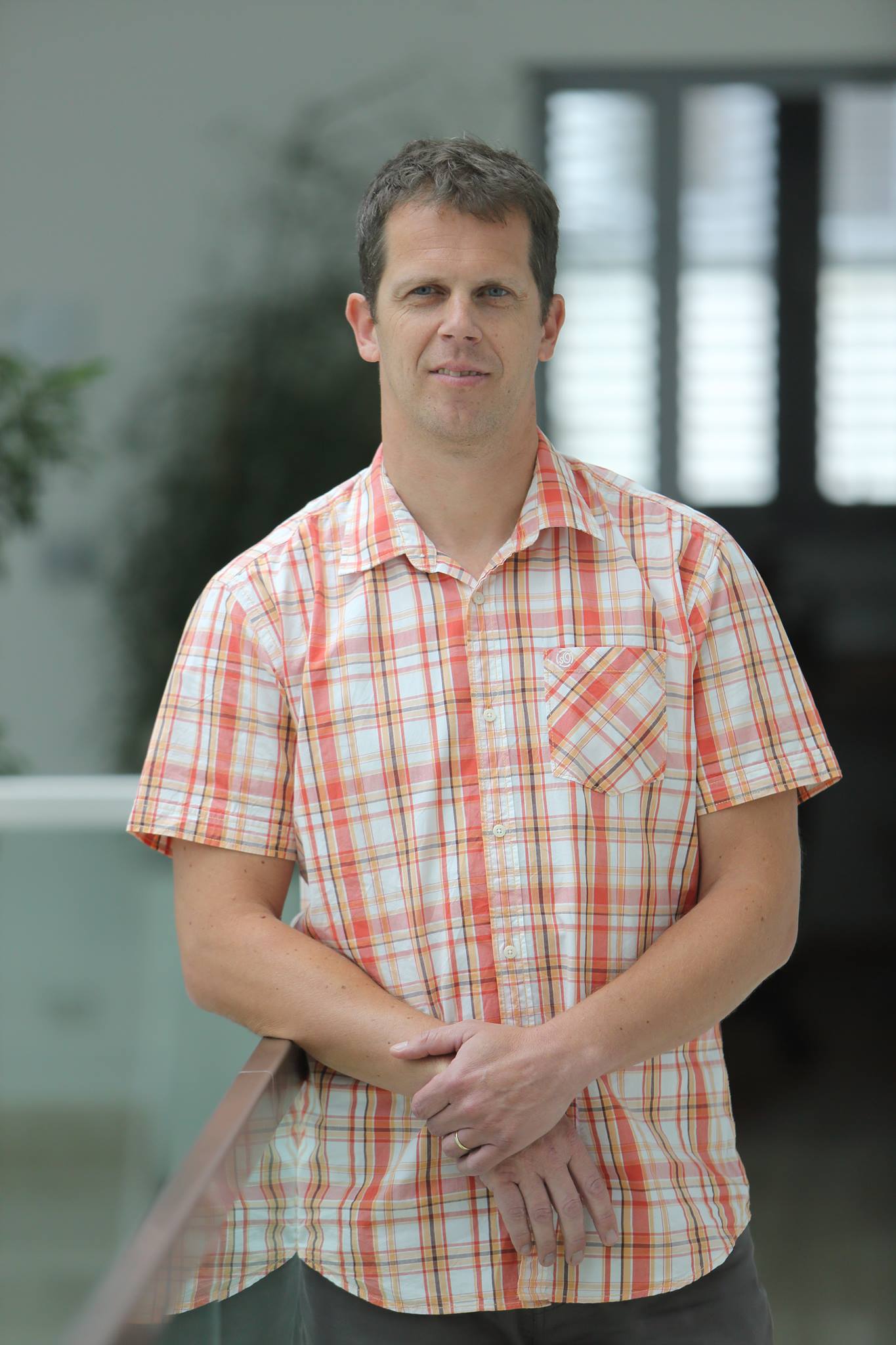 After a battle
with a serious illness, our dear colleague, friend and
researcher Prof. Dr. Gregor Mali has passed away. He was
part of the zeolite research community for more than 25
years and was also active in the Slovenian Zeolite
Association. We will cherish the memory of our esteemed
colleague. After a battle
with a serious illness, our dear colleague, friend and
researcher Prof. Dr. Gregor Mali has passed away. He was
part of the zeolite research community for more than 25
years and was also active in the Slovenian Zeolite
Association. We will cherish the memory of our esteemed
colleague.Prof. Dr. Gregor Mali has been employed at the National Institute of Chemistry in Ljubljana in the Department of Inorganic Chemistry and Technology since 1997. Since 2007, he has been habilitated in the field of Physics at the University of Nova Gorica and since 2019 also at the Faculty of Mathematics and Physics of the University of Ljubljana. Prof. Mali's research work was devoted to the development and application of nuclear magnetic resonance (NMR) methods and computational methods for the study of the structure of solids. Research areas to which Prof. Mali paid the most attention were the development of new porous catalysts and adsorbents for environmental and energy applications, and the development of batteries. In recent years, Prof. Mali has become one of the world's most prominent scientists in the field of NMR research on porous materials. He has authored or co-authored more than 130 scientific articles in prestigious journals, including Science and Nature group. The importance and excellence of his research is evidenced by the two prestigious awards he received in 2017, namely the Pregl Award for outstanding achievements in the field of chemistry and related sciences and the Zois Prize for significant scientific achievements in the field of nuclear magnetic resonance of materials. Prof. Mali's research work was excellent, dedicated and responsible to his colleagues and students. We admired and appreciated him for his exceptional approachability, kindness, respectful attitude and brilliant thinking. We will miss him sorely. |
||||||||||||||||
| 7-Apr-23 | Sigmund M. Csicsery (1929 - 2022) | |||||||||||||||
| We received the very sad news that Dr. Sigmund M. Csicsery, one of the big pioneers of shape selective catalysis, passed away in his home at Moraga (California) on December 18, 2022. Sigmund is mourned by his family, as well as many friends, colleagues, and acquaintances with whom he made connections throughout the world. His remains will be laid to rest at the Tahy family crypt in Balatonszemes, Hungary. Sigmund was a member of the Hungarian Academy of Sciences and was awarded the prestigious Gábor Dénes Award in 2020–2021. He had over 50 publications and 27 patents to his name. | ||||||||||||||||
| 6-Jan-23 | Petr Nachtigall (1963 - 2022) |
|||||||||||||||
|
It is with great sadness that we have to communicate the
passing of Prof. RNDr. Petr Nachtigall, Ph.D. on 28 December
2022. He was an internationally recognized expert in
computational material science with particular emphasis on
porous materials. He received his Ph.D. at the University of
Pittsburgh. After returning to Prague, he worked at the J.
Heyrovsky Institute of Physical Chemistry, later at the
Institute of Organic Chemistry and Biochemistry of the Czech
Academy of Sciences, and since 2009 at the Faculty of
Science of Charles University. Here he made a major
contribution to the establishment and development of the top
scientific center "CHARLES UNIVERSITY CENTRE OF ADVANCED
MATERIALS" and introduced a new PhD and MSc program
"Modelling of chemical properties of nano and
biostructures". Recently, he has conceived and organized the
establishment of a new Bachelor of Science program
"Science". Prof. Nachtigall has regularly published in the
most prestigious scientific journals; he is the author of
181 publications with 8,289 citations and an h-index of 54
(as of 1 January 2023). He is well known for his studies of adsorption complexes and reaction mechanisms in zeolites and analogous materials, which significantly contributed to the understanding of the behavior of zeolites for practical applications. Moreover, the has contributed significantly to the discovery and theoretical explanation of a new method of synthesis of zeolites ADOR, thanks to which more than 10 new types of zeolites have already been synthesized. Prof. Nachtigall was awarded the Bedřich Hrozný Prize for Basic Research (2015), the Prize of the Minister of Education, Youth and Sports for significant results of basic research in natural sciences (2019) and the Donatio Universitatis Carolinae (2021). In Peter Nachtigall we lose not only an outstanding scientist, teacher and mentor, but also a great person and friend. Our thoughts are with is wife Gabriela and his family. |
||||||||||||||||
| 18-Jul-22 | News from the IZC-20 in Valencia | |||||||||||||||
| Seven new
council members were elected: |
||||||||||||||||
| Rob Ameloot (Belgium) Roger Glaeser (Germany) Tina Nenoff (USA) Sibele Pergher (Brazil) Domenico Caputo (Italy) Manuel Molinar (Spain) Natasa Z. Logar (Slovenia) |
||||||||||||||||
| The new executive committee of the IZA council: | ||||||||||||||||
| Svetlana Mintova, President Michael Stockenhuber, Vice-President Natasa Z. Logar, Secretary Jeffrey Rimer, Treasurer |
||||||||||||||||
| The Next International Zeolite Conferences (IZC) | ||||||||||||||||
| At a Business Meeting, the IZA Board selected the venue for the 22nd IZC in 2028: | ||||||||||||||||
| Philadelphia, USA | ||||||||||||||||
| The next 21st IZC will be held in 2025 in Dalian, China. | ||||||||||||||||
| Awards |
||||||||||||||||
| The 2022 Don Breck Award | ||||||||||||||||
| Suk Bong Hong (POSTECH, Korea) for developing innovative synthetic methodologies including the synergistic use of organic and inorganic structure-directing agents that resulted in new zeolite framework types. 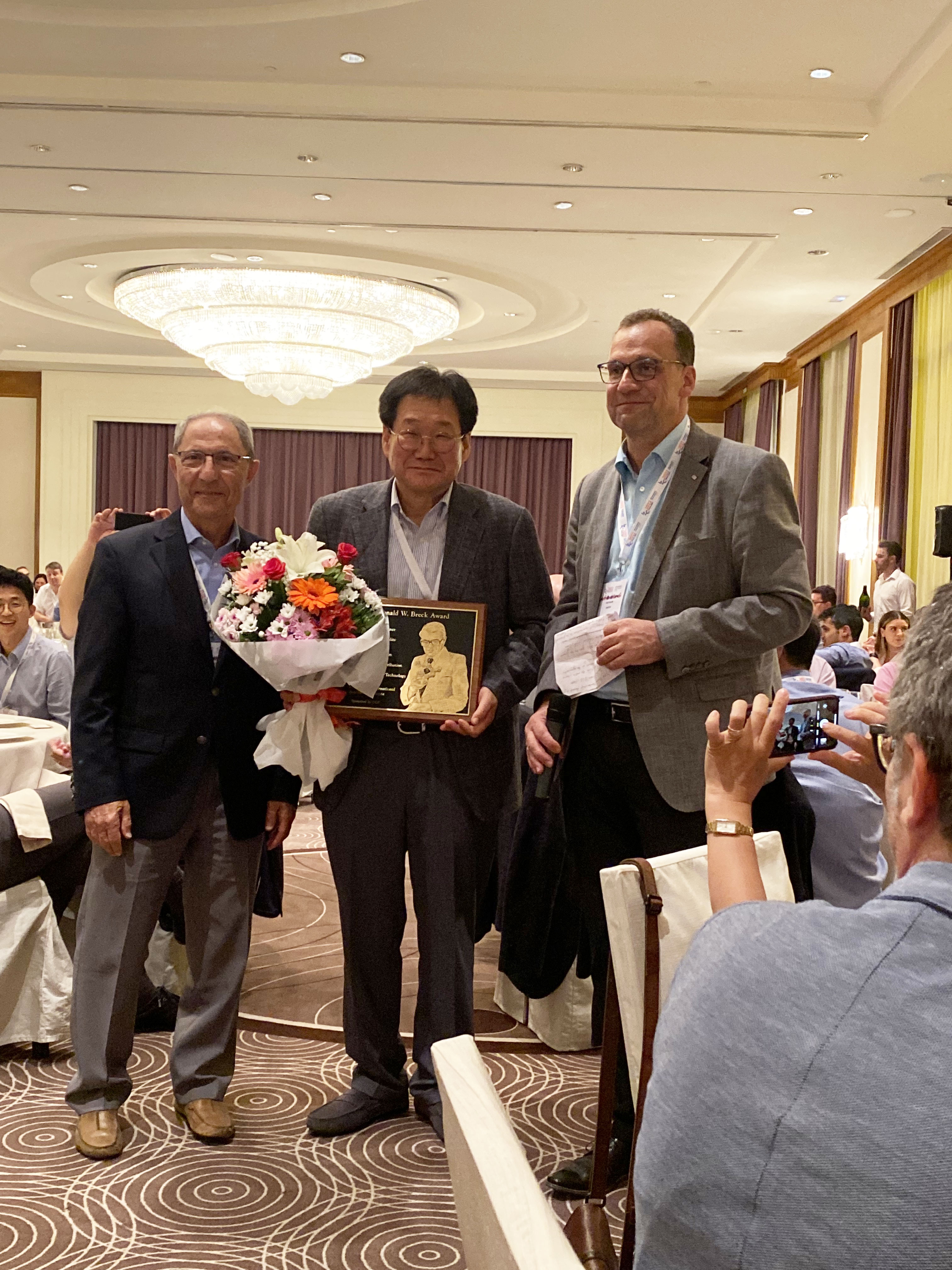 Suk Bong Bong (middle) with the representative of UOP-Honeywell Suheil Abdo (left) and the president of the IZA Martin Hartmann (right). |
||||||||||||||||
| The 2022 IZA award | ||||||||||||||||
| Valentin Valtchev (CNRS, France) for his important contributions to the fundamental understanding of zeolite synthesis and post-synthesis modification of industrially-important zeolites. Prof. Valtchev will act as the IZA Ambassador from now until the next IZC in 2025. Valentin Valtchev (left) with the president of the IZA Martin Hartmann (right). |
||||||||||||||||
| The 2022 Young Researcher Award (YRA) | ||||||||||||||||
| Michiel Dusselier (KU Leuven, Belgium) for his achievements in the knowledge-based development of catalyst for innovative catalytic conversion processes. |
||||||||||||||||
| IZA Honorary Membeships | ||||||||||||||||
| Jean-Pierre Gilson (LCS, ENSICAEN, France) for his outstanding contribution to zeolite science and technology and for the great service in the organization IZA-related events. Avelino Corma (ITQ-Valencia, Spain) for his outstanding contributions to zeolite science and technology and his great service as chairman of IZC2022. |
||||||||||||||||
| 10-Mar-22 | News from FEZA | |||||||||||||||
| The Federation of European
Zeolite Associations (FEZA) created in January 1996,
consisting of 17 National Zeolite Associations (Bulgaria,
Croatia, Czech Republic, France, Germany, Hungary, The
Netherlands, Italy, Poland, Portugal, Romania, Russia,
Serbia, Slovakia, Slovenia, Spain, UK) has taken the
following decision in strong support of Ukraine and all
people suffering from the horrible war. Zeolite Associations within the FEZA wholehertedly approved the measure to suspend Russia from FEZA, and to promote other activities of the scientific community in support of Ukraine. Our resolution is taken to support the peace, and in opposition to war and the suffering of the people in Ukraine. We hope for an immediate stop to this war and a peaceful future for Europe. Let us stand together for a peaceful worldwide community and for the sake of our future generations. We do believe that Russian people are also victims of their government and our action is not against them. The Russian scientists are not responsible for this war, but we, as a European research community, express our opinion now. The aggression against Ukraine decided by the government of Russia reflects on all of us! The objectives of FEZA are to improve communication and collaboration between researchers in Europe for the benefit of the public and therefore we decided to: 1. Suspend the membership of Russia from FEZA. 2. Become a promoter for other European initiatives reflecting the opinion of other European scientific communities by: - official statement on the FEZA website - state our strong support in papers currently in press - express our support during meetings, conferences. 3. A FEZA solidarity scholarship will be provided to a Ukrainian early career researcher to attend a conference in the field of porous materials. |
||||||||||||||||
| 9-Feb-22 | Karl Seff (1938 - 1921) | |||||||||||||||
|
We were saddened to hear that Prof. Karl Seff, known for his
colorful Hawaiian shirts and ready smile at zeolite
conferences, passed away at the age of 84 on September 11
last year. Karl started his career in zeolite crystallography with David P. Shoemaker at MIT, where he received his PhD in 1964. After a post-doc with Kenneth N. Trueblood at UCLA, he joined the Chemistry Department at the University of Hawaii in 1967, and remained there until his retirement 40 years later. He is probably best known for his pioneering research using tiny zeolite A crystals, modified in various ways, to collect single-crystal X-ray diffraction data for structure analysis. This allowed him to elucidate intriguing zeolite chemistry at the atomic level. As instrumentation and computing power improved, he expanded this research, along with colleagues in South Korea, to include zeolites X and Y. Although he retired officially in 2007, he continued his research activity until just six weeks before his death. He will be remembered fondly by all those students who were fortunate enough to have him as an advisor. He took great interest in following his students' careers and personal lives long after graduation. A student of Karl's was a student and friend for life. His infectious enthusiasm for science and life in general made every encounter an experience worth remembering. He will be missed not only by his zeolite colleagues and his students, but also by his fellow cactus enthusiasts and his vegan friends. Aloha Karl |
||||||||||||||||
| 18-Jan-22 | The Young Researcher Award (YRA) committee invites applications for the 2022 YRA | |||||||||||||||
| The Young Researcher Award
will be given to an individual for outstanding contribution
to the Science and Technology of zeolites and related
nanoporous materials, since January 1st of the year of the
last IZC to the December 31st of the year before the IZC
where the award will be given. For more information visit
the YRA page. The applications should be sent by March 3, 2022 to the IZA secretary: Prof. Heloise Pastore E-mail: lolly@unicamp.br |
||||||||||||||||
| 12-Jan-22 | Nominations for the 2022 Donald W. Breck Award invited | |||||||||||||||
| The Breck Award nomination
committee invites nominations for the 2022 Donald W. Breck
Award. This award is for the most significant contribution
to Molecular Sieve Science and Technology made between
January 1, 2017 and December 31, 2021 and the winner will be
announced on July 7, 2022 at the 20th IZC in Valencia,
Spain. The award may be given to an individual or to a group. The nomination should be accompanied by a list of maximum 5 references and a 2 page summary outlining in detail the novel findings and their scientific merit. It should includes supporting letters from three established zeolite scientists. For more Information visit the Breck Award page. Nominations should be sent by April 3, 2022 to the Chair of the Breck Award Committee: Dr. Valentin Valtchev CNRS, France E-mail: valentin.valtchev@ensicaen.fr |
||||||||||||||||
